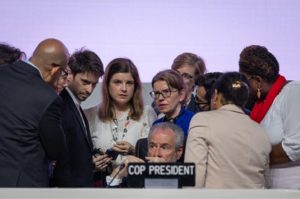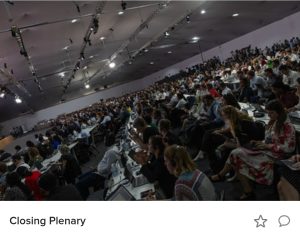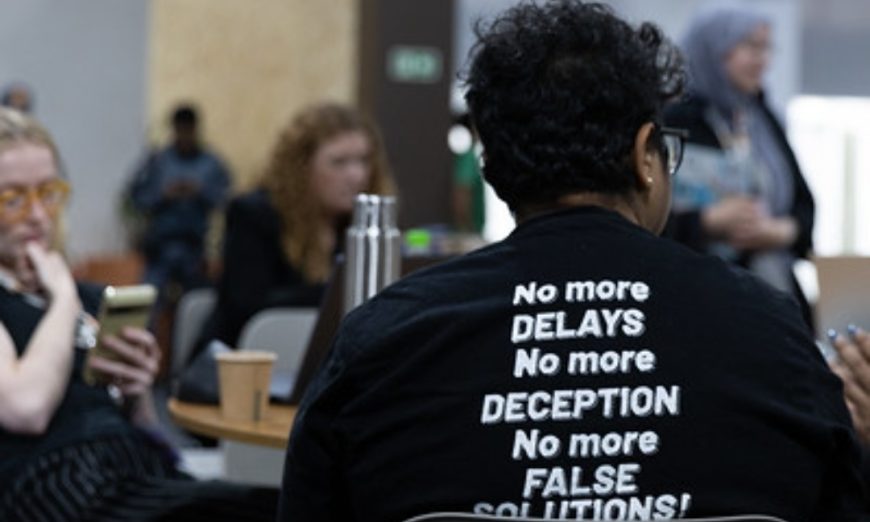When COP30 drew to a close yesterday in Belém, Brazil, it was not just another multilateral ceremony. It was a moment for African leaders and negotiators to insist their priorities be at the center of the global climate agenda.
Africa demands adaptation, justice, and fairness. And some did speak up, even if the final deal reflected only partial wins.

COP30 President André Aranha Corrêa do Lago opened the final session with a calibrated tone: “We know some of you had greater ambition for some of the issues at hand … I will try not to disappoint you.”
He also announced his personal commitment: “I will create two roadmaps: one on halting and reversing deforestation, another for a just, orderly, and equitable transition away from fossil fuels.”
His pledge drew some applause – but critics argue that these “roadmaps,” being outside the main UN decision, lack the force of a binding commitment.
In response, Dr. Richard Muyungi, Tanzania’s presidential envoy and chair of the African Group of Nations, made one of the summit’s clearest interventions. He said that Africa had already compromised “a lot” but would not yield on tripling adaptation finance:
We cannot compromise on the means of implementation … the tripling of adaptation finance.”
Dr. Muyungi forcefully rejected demands that Africa support a fossil-fuel phase-out in exchange for more money:
Why are we being held to ransom … like you are trading our lives with something we never caused.”
Another voice from Africa came through Dion George, South Africa’s Minister of Forestry, Fisheries and the Environment, speaking earlier at the summit and quoted in media coverage. He called for real, accountable financing: “Every decision in Belém must come with a clear plan for implementation, financing and accountability … People and communities living with the daily reality of climate change cannot wait any longer.”
George also emphasized that the Global Goal on Adaptation (GGA) needed measurable indicators so that progress could be tracked – otherwise, he warned, the goal would lack credibility.

From civil society, Mohamed Adow, Director of Power Shift Africa, was blunt in his closing critique: “We are not only asking for promises. We need concrete finance, technology and trust. Africa brings solutions – renewable energy potential, a vision for justice – but we deserve delivery, not just lip service.”
And Nafkote Dabi, Oxfam International’s Climate Policy Lead, gave perhaps the sharpest rebuke: “Rich countries are treating adaptation finance as a bargaining chip … anything less than full delivery of $120 billion a year is a gamble with the lives of the poorest.”
She also condemned the absence of a fossil-fuel phase-out roadmap:
Science has been deleted from COP30 because it offends the polluters.”
So, yes – in the closing hours, Africa’s voice was not only present, but forceful. African negotiators and civil society did not meekly accept compromise; they pressed hard for real commitment on adaptation and justice.
But while the deal promises tripled adaptation finance, it delays it until 2035 and leaves major questions unanswered. The plan for fossil-fuel transition is relegated to side processes, not the main deal.
The result? A fragile compromise. Leaders like Corrêa do Lago offered new processes. Dr. Muyungi and George demanded accountability. Activists like Adow and Dabi warned of moral failure if promises were not kept.
COP30’s conclusion shows that Africa is no longer content to be a passive victim in climate talks. But whether Belém becomes a turning point or just another symbolic moment depends on whether those pledged roadmaps and finances are turned into real, concrete action – and whether African countries can hold the rest of the world to account.










